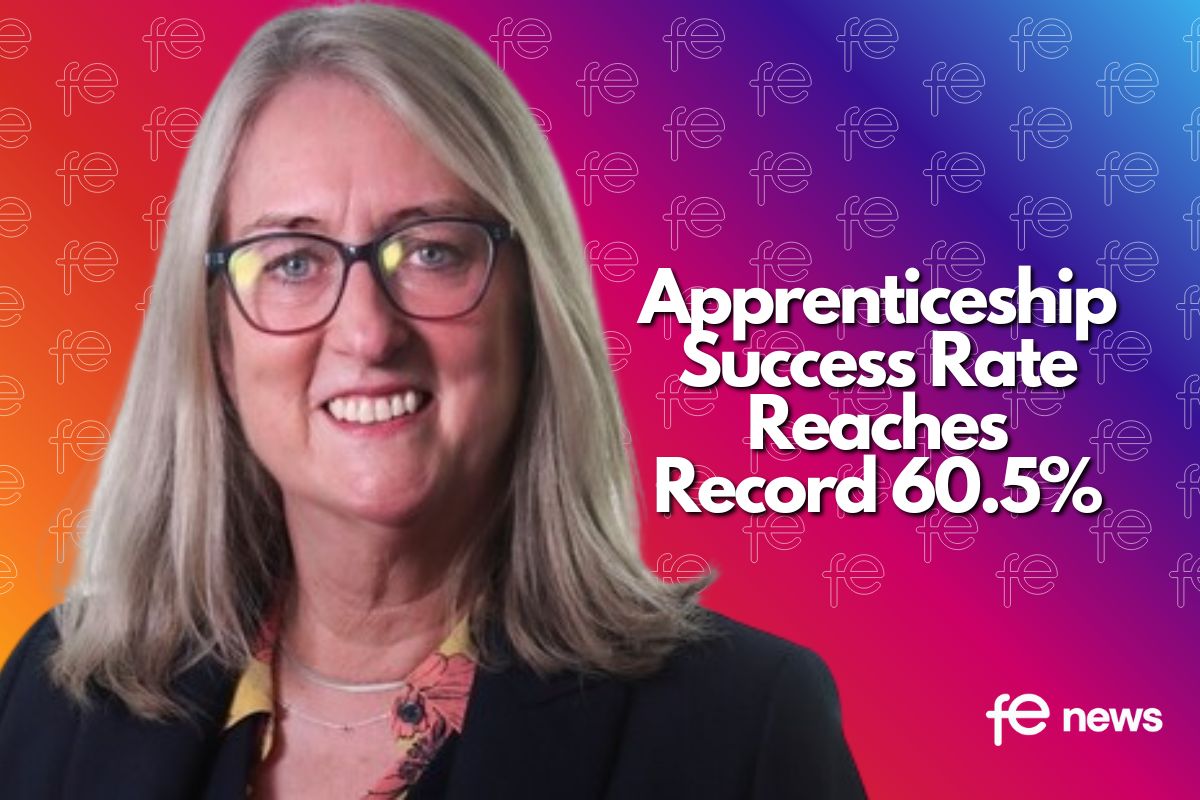London Higher Response to Consultation on HE Reform: Part 2

This document provides London Higher’s response to the Department for Education’s consultation on
HE Reform, published on the 24 February, for response before 06 May 2022.
This consultation response was created after extensive discussion with the London Higher membership and seeks to represent the diversity of London HE.
Minimum Eligibility Requirements
Question 5: Do you agree with the case for a minimum eligibility requirement to ensure that taxpayer- backed student finance is only available to students best equipped to enter HE? Yes or No. Please explain your answer and give evidence where possible.
No, London Higher does not agree with the implementation of any form of minimum eligibility requirements (MERs). London Higher believes that MERs would exert a disproportionate and unjustifiable impact on many underrepresented groups and many of those with characteristics protected under equalities legislation. If such a policy was introduced, we believe it would have a significant negative impact upon the access and participation agenda, undoing the valuable work that many London higher education providers have been doing in recent years to support social mobility in the capital. It directly contradicts the government’s own assertion that ‘talent is everywhere, but opportunity is not,’ as this is a measure that closes down opportunity for those that most need it.
Although these restrictions are being described as ‘minimum eligibility requirements’ focused upon restricting access to student finance, we suggest that this is disingenuous and that these restrictions are in fact akin to minimum entry requirements, as they determine the limit at which students can access student finance and loans. Moreover, minimum eligibility requirements suggest that students who are able to afford to finance their higher education through their own or family resources, irrespective of minimum grades achieved, are privileged over students who have no other choice but to rely on student loans.
It is well documented that attainment at both GCSE and A Level has a strong socioeconomic gradient. In addition, particular underrepresented groups including some groups with protected characteristics have well-evidenced lower attainment levels at both GCSE and A Level. Proposed MERs at GCSE would lock out almost half (49.4%) of Free School Meal (FSM) eligible learners in outer London who do not achieve a grade 9-4 pass in English and maths at GCSE, 40.1% of Black pupils and 86.1% of special educational needs (SEN) pupils. Research from our AccessHE division also shows that if MERs were to be set at A-Level, then this would disproportionately affect London’s Black African, Black Caribbean, Bangladeshi and Pakistani students, who are most likely to hold at least one ‘E’ grade. At the 2011 census, London was the most ethnically diverse region in England, where 40.2% of residents identified with either the Asian, Black, Mixed or Other ethnic group. In fact, the total Black population of London stood at 1,101,688 and this is highly likely to have increased considerably over the past decade, so a significant proportion of prospective London students are set to be affected by the imposition of MERs. Moreover, with the Black population of London highly concentrated in South London, particularly in the four boroughs of Lambeth, Southwark, Lewisham and Croydon, any attempt to impose MERs would create a disproportionate geographical divide across the city, with those south of the river more likely to be restricted from accessing the means necessary to embark on higher education.
The government’s own EIA states on p.19 that, ‘Students with certain protected characteristics, such as students from black and ethnic minority groups and those with Special Educational Needs, are likely to be disproportionately impacted as they are less likely to achieve certain levels of prior attainment than other students.’ Research by Boliver and colleaguesalso suggests that, whilst there is a relationship between prior attainment at Level 3 and success in higher education, over 50% of students entering with EEE grades are successful (p.3) and assert that, ‘critically, non-zero chances of success, and especially chances of success above fifty percent, indicate that there is potential for successful study at degree-level for contextually admitted students, at least under certain conditions’ (p.5.). Nearly 700 Londoners who did not pass English or maths GCSE did go on to attain level 6 by age 26. Moreover, no provider or government can precisely identify which individuals will be successful within this group prior to them commencing higher education. This suggests that the introduction of MERs would represent a disproportionate means of reducing the burden to the taxpayer as it would prohibit opportunity to the most disadvantaged, despite evidence suggesting that these students can and do benefit from higher education.
As a result of this data and evidence we suggest that the proposals are in breach of the Equality Act and the Public Sector Equality Duty on the following grounds:
- a) Far from eliminating unlawful discrimination, they indirectly discriminate against several significant groups of students.
- b) They do not advance equality of opportunity, rather they decrease it.
- c) Given their disproportionate adverse impact on particular groups, they will do nothing to foster good relationships between different groups.
We do not believe that any public authority having due, demonstrable and proper regard to its positive equality duties could adopt a policy of MERs.
We also believe that MERs contravene the European Convention on Human Rights, specifically Article 2 to the First Protocol (the right not to be denied access to an education) and the prohibition on discrimination under Article 14 .
In addition to the concerns regarding the contravention of equality legislation, the implementation of MERs represents a focus on a student deficit model (individuals not attaining particular grades), rather than the structural issues which must be tackled in order to improve student outcomes. This runs counter to the work of the new Director for Fair Access and Participation, John Blake. London Higher is proud that London’s higher education sector leads the way across much of the access and participation agenda and we welcome the opportunity to work on the specific issues surrounding the success of particular groups, rather than the blanket exclusion of these students from higher education. Whilst London Higher recognises the drive as part of the Access and Participation agenda to improve attainment in schools, this responsibility does not lie solely or evenly predominantly with higher education institutions. Introducing MERs penalises students failed earlier on in their schooling, without allowing the lifeline that higher education often provides these students with, enabling those who have not achieved specific GCSE and A Level grades an opportunity to thrive in education at a later date.
Moreover, any moves to impose MERs will disproportionately impact upon lower tariff providers, many of whom have been recruiting students with grade portfolios below the proposed MERs over recent years and demonstrating strong outcomes. These providers often demonstrate strong outcomes in terms of social mobility and distance travelled, shown by multiple different metrics including the Sutton Trust and HEPI. We suggest that we should be fostering a culture that rewards those institutions who support students to significantly improve their life chances, rather than those who select students from advantaged backgrounds.
MERs seek to limit the supply of higher education to particular groups, whilst quality vocational and technical pathways remain an aspiration rather than a reality. Imposing MERs whilst reducing funding for Foundation Years (discussed below) appears both to limit access to Level 6 higher education and viable pathways to this. Before closing off pathways to particular groups, London Higher urges the government to ensure that meaningful alternatives are established and evaluated to demonstrate that these provide viable options for those students other than higher education. To assess progression routes and opportunity gain thoroughly, this will require a considerable longitudinal study of the impacts on different student groups, not a simple short-term pilot.
London Higher would welcome clarity on whether alternative qualifications, such as Functional Skills courses would be recognised in meeting MERs. There is also no mention of BTEC qualifications, despite the fact that 20% of London of students who currently progress to higher education do so with a BTEC qualification and, regardless of whether these are defunded in the coming years, will continue to hold these qualifications.
The blanket imposition of MERs does not reflect the variation in skills required for different courses. All higher education providers set minimum entry requirements for courses where they deem it to be required in order for students to succeed. This allows for a holistic, nuanced approach to success which considers the needs of learners on specific courses – and for some disciplines also allows providers to put more weight, for example, on pre-admissions auditions or portfolios, as appropriate. Where these institutional or course level requirements are not successful, the current OfS proposals will already see
regulatory action taken against these institutions and courses. Centrally imposed MERs therefore provide a blanket solution to a highly nuanced landscape, where much of the provision is deemed excellent and students who currently do not achieve the proposed MERs experience life-changing benefits.
Question 6: Do you think that a grade 4 in English and maths GCSE (or equivalent), is the appropriate threshold to set for evidence of skills required for success in HE degree (L6) study, managed through their eligibility for student finance? Yes or No. Please explain your answer and provide reference to any pedagogical or academic sources of evidence to explain your reasoning.
No. As discussed in Question 5, it is well documented that attainment at both GCSE and A Level has a strong socioeconomic gradient. In addition, particular underrepresented groups including some groups with protected characteristics have well-evidenced lower attainment levels at both GCSE and A Level. Proposed MERs at GCSE would lock out almost half (49.4%) of Free School Meal (FSM) eligible learners in outer London who do not achieve a grade 9-4 pass in English and maths GCSE, 40.1% of Black pupils and 86.1% of special educational needs (SEN) pupils.
In the current environment, students who fail maths or English GCSE in Year 11 are unlikely to pass a resit. Given low success rates of resits, MERs at GCSE would condemn many young people to a cycle of failure with no progression pathway to higher education. It is also unrealistic to assume that these students will be “ready” to embark on higher education at a later stage in their lives even with the LLE that is also currently being consulted on because, as evidence shows us, for many people leaving school without going on to tertiary education, life gets in the way and caring commitments, work and other social pressures act as barriers to prevent them from re-entering education as adults. New research for the GLA also finds that disabled people disproportionately face barriers to adult education in London, so preventing them from entering higher education through MERs at age 18 where they would receive high-quality, tailored wraparound support from providers risks violating the spirit and the letter of equalities legislation.
The government’s own EIA states on p.19 that, ‘Students with certain protected characteristics, such as students from black and ethnic minority groups and those with Special Educational Needs, are likely to be disproportionately impacted as they are less likely to achieve certain levels of prior attainment than other students.’
As a result of this data and evidence we suggest that the proposals are in breach of the Equality Act and the Public Sector Equality Duty on the following grounds:
- a) Far from eliminating unlawful discrimination, they indirectly discriminate against several significant groups of students.
- b) They do not advance equality of opportunity, rather they decrease it.
- c) Given their disproportionate adverse impact on particular groups, they will do nothing to foster good relationships between different groups.
We do not believe that any public authority having due, demonstrable and proper regard to its positive equality duties could adopt a policy of MERs.
We also believe that MERs contravene the European Convention on Human Rights, specifically Article 2 to the First Protocol (the right not to be denied access to an education) and the prohibition on discrimination under Article 14.
Question 7: Do you think that two E grades at A-level (or equivalent) is the appropriate threshold to set for eligibility to student finance, to evidence the skills required for success in HE degree (L6) study? Yes or No. Please explain your answer and provide reference to any pedagogical or academic sources of evidence to explain your reasoning.
No. As discussed in Question 5, research by Boliver and colleagues suggests that, whilst there is a relationship between prior attainment at Level 3 and success in higher education, over 50% of students entering with EEE grades are successful (p.3) and assert that, ‘critically, non-zero chances of success, and especially chances of success above fifty percent, indicate that there is potential for successful study at degree-level for contextually admitted students, at least under certain conditions’ (p.5.). Moreover, no provider or government can precisely identify which individuals will be successful within this group prior to them commencing higher education. This suggests that the introduction of MERs would represent a disproportionate means of reducing the burden to the taxpayer as it would prohibit opportunity to the most disadvantaged, despite evidence suggesting that these students can and do benefit from higher education.
The government’s own EIA states on p.19 that, ‘Students with certain protected characteristics, such as students from black and ethnic minority groups and those with Special Educational Needs, are likely to be disproportionately impacted as they are less likely to achieve certain levels of prior attainment than other students.’
As a result of this data and evidence we suggest that the proposals are in breach of the Equality Act and the Public Sector Equality Duty on the following grounds:
- a) Far from eliminating unlawful discrimination, they indirectly discriminate against several significant groups of students.
- b) They do not advance equality of opportunity, rather they decrease it.
- c) Given their disproportionate adverse impact on particular groups, they will do nothing to foster good relationships between different groups.
We do not believe that any public authority having due, demonstrable and proper regard to its positive equality duties could adopt a policy of MERs.
We also believe that MERs contravene the European Convention on Human Rights, specifically Article 2 to the First Protocol (the right not to be denied access to an education) and the prohibition on discrimination under Article 14.
Question 8: Do you agree that there should there be an exemption from MERs for mature students aged 25 or above? Yes or No. Please explain your answer and give evidence where possible.
Yes. London Higher welcomes the proposed exemption for mature students from MERs, whilst maintaining that MERs in any form would exert a disproportionate and unjustifiable impact on many underrepresented groups and students with characteristics protected under the Equality Act. If such an MER policy was introduced, we believe that it would have a significant negative impact upon the access and participation agenda, undoing the valuable work that many London higher education providers have been doing in recent years to support social mobility in the capital.
London Higher suggests that should MERs be introduced, the aged categorisation for a mature student should be in line with the OfS’ classification of 21.
Question 9: Do you think there should be an exemption from MERs for part-time students? Yes or No. Please explain your answer and give evidence where possible.
Yes. London Higher welcomes the proposed exemption for part-time students from MERs, whilst maintaining that MERs in any form would exert a disproportionate and unjustifiable impact on many underrepresented groups and many students with characteristics protected under the Equality Act. If such a MER policy was introduced, we believe that it would have a significant negative impact upon the access and participation agenda, undoing the valuable work that many London HEIs have been doing in recent years to support social mobility in the capital.
Question 10: Do you agree that there should be an exemption to the proposed MERS for students with existing level 4 and 5 qualifications? Yes or No. Please explain your answer and give evidence where possible.
Yes. London Higher welcomes the proposed exemption for students with existing level 4 and 5 qualifications from MERs, whilst maintaining that MERs in any form would exert a disproportionate and unjustifiable impact on many underrepresented groups and many students with characteristics protected under the Equality Act. If such a policy was introduced, we believe it would have a significant negative impact upon the access and participation agenda, undoing the valuable work that many London HEIs have been doing in recent years to support social mobility in the capital.
Question 11: Do you agree that there should be an exemption from any level 2 eligibility requirement to level 6 study for students with good results at level 3? Yes or No. Please explain your answer and give evidence where possible.
Yes. London Higher welcomes the proposed exemption from any level 2 eligibility requirement to level 6 study for students with good results at level 3, whilst maintaining that MERs in any form would exert a disproportionate and unjustifiable impact on many underrepresented groups and many students with characteristics protected under the Equality Act. If such a policy was introduced, we believe it would have a significant negative impact upon the access and participation agenda, undoing the valuable work that many London HEIs have been doing in recent years to support social mobility in the capital.
Question 12: Do you agree that there should be an exemption to MERs for students who enter level 6 via an integrated foundation year, or who hold an Access to HE qualification? Yes or No. Please explain your answer and give evidence where possible.
Yes. London Higher welcomes the proposed exemption for students who enter level 6 via an integrated foundation year, or who hold an Access to HE qualification, whilst maintaining that MERs in any form would exert a disproportionate and unjustifiable impact on many underrepresented groups and students with characteristics protected under the Equality Act. If such an MER policy was introduced, we believe that it would have a significant negative impact upon the access and participation agenda, undoing the valuable work that many London HEIs have been doing in recent years to support social mobility in the capital.
If MERs were to be introduced, London Higher suggests that this would require an expansion of the existing Foundation Year programme, to provide meaningful support to those students who would otherwise be excluded from higher education. This runs contrary to the proposals set out later in the consultation to reduce funding for Foundation Year programmes. An expanded discussion around Foundation Years can be found in Question 14.
Question 13: Are there any other exemptions to the minimum eligibility requirement that you think we should consider? Yes or No. Please explain your answer and give evidence where possible.
London Higher believes that MERs would exert a disproportionate and unjustifiable impact on many underrepresented groups and many students with characteristics protected under the Equality Act. If such a policy was introduced, we believe it would have a significant negative impact upon the access and participation agenda, undoing the valuable work that many London higher education providers have been doing in recent years to support social mobility in the capital. As a result, we do not think the implementation of MERs in any capacity is appropriate.
Read all from the 4-part series here:











Responses